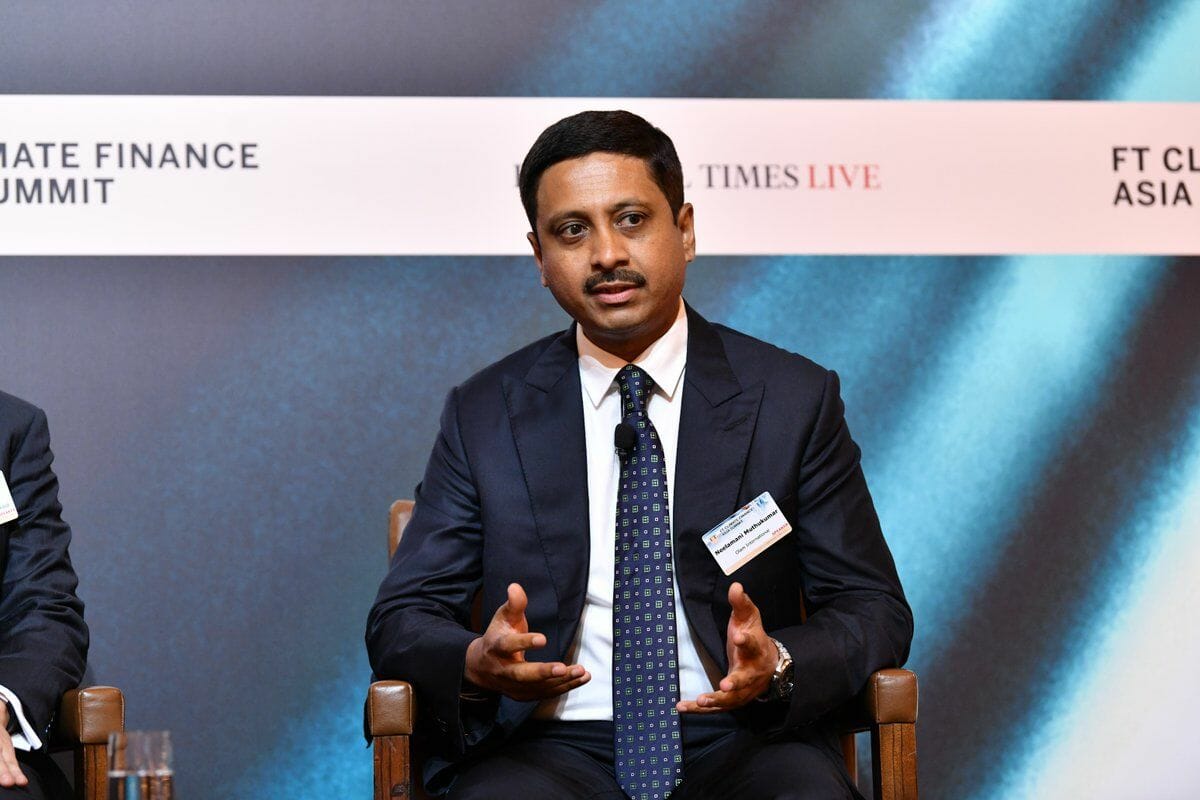Olam set up a “war room” consisting of top execs and senior managers to tackle the immediate effects of Covid-19 on agrifood supply chains, said the company’s chief financial officer and managing director Neelamani Muthukumar at an online conference this week. But to mitigate the longer lasting impacts of the pandemics and global lockdown, Olam is looking to digitization to “disintermediate” the industry, he added.
Muthukumar was speaking on a panel on supply chains at Insight 2020, an online conference run by Singapore-based investment research platform Smartkarma.
“First and foremost, what we did at the corporate level was establish a war room,” he said, describing Olam’s immediate response to the Covid-19 crisis. “[It’s] ensuring we have a holistic outlook on what these disruptions mean for our businesses worldwide. And instead of focusing just on surviving [focusing on] how will we thrive when we’ve got through this, to address fragility in the short term, and opportunity in the long term?”
Lockdowns, movement restrictions, and border closures have had a knock-on impact on global agri-commodity trade. Farms, factories, and food processing plants have been operating below optimal capacity – if at all – while logistics have been severely hampered in many cases.
“In most geographies, we have got an exemption to operate,” Muthukumar said, explaining that many of Olam’s operations have been judged to be ‘essential services’ that can continue, to some extent, amid lockdown measures. This alone does not solve all the supply chain problems facing the company, however.
He cited the example of the movement control order implemented by the Malaysian government on 18 March. Many of the workers at Olam’s Singapore cocoa processing facility make the short trip across the border from Malaysia every day.
“Within 48 hours, [this stopped] many of our workers coming from across the border in [the Malaysian state of] Johor, leading to labor shortages. We did a thorough rethink of manpower sourcing,” he said.
The situation was exacerbated by Singapore’s own ‘circuit breaker’ measures, which saw many of Olam’s input providers cease operations as they were deemed to be non-essential industries. To keep the plant running, Olam engaged with the governments of both countries to try to ensure the flow of materials across the border (which was still open to goods).
Muthukumar added that, despite the intense challenges presented by the pandemic, businesses should look for silver linings where they can.
“We have cocoa processing plants across Africa, Asia, Europe, and the Americas,” he said. “Because of the short-term demand contraction for chocolate consumption, we are actually looking at this as an opportunity. [We’ve implemented] a sequential shutdown across Africa and the Americas. We’re using this as an opportunity to refurbish our plants, so post-Covid, we’ll be better placed to take on the increased demand [for chocolate] which is forecast.”
Increasing reliance on tech
Longer-term, however, Olam sees itself relying increasingly on tech, just as much as on smart strategic decision making.
In response to an AFN question, Muthukumar said that Olam’s digitization plans are “not just a response to Covid-19,” but the company has been gradually digitising its supply chain for the past five years.
How will Olam digitise its operations and use tech solutions to build resilience post-Covid 19? What particular technologies is Olam and its farmer-partners interested in in this regard?
“It’s about disintermediation of the supply chain,” he said. “Farmers are the most impacted, and least [wealthy], in terms of the whole supply chain in agri-commodities.”
Historically it has almost been impossible for large corporates like Olam to buy directly from smallholders, as their small growing space, low yields, and their restricted ability to grow consistently over time make it economically unviable.
“So we inevitably rely on a series of intermediaries between the farmer and us,” Muthukumar continued. “But digital technology has given us access; the ability to go directly to [smallholders] using smartphones.”
He said that Olam’s online ag marketplace and advisory platform aimed at smallholders, the Olam Farmer Information System, has been “successful” in its pilot markets of India, Indonesia, and Colombia.
“Now we will expand it – from 20,200 [at launch] to 50,000 farmers [today], and the potential to take on millions of farmers as we go along.”
Muthukumar added that Olam sees promise in technological solutions that can bring more efficiency to the supply chain, including blockchain.
“A chunk of time is wasted in physically shifting things, [on] bills of lading, and so on,” he said. “Using blockchain, the supplier, the customer, the bank in between, the freight forwarder, the shipping agent – they all work in tandem to ensure access to these documents securely. It’s still nascent, and largely, the global supply chain is still reliant on traditional methods. But it’s an exciting opportunity, and we’re seeing more large companies [like ours] are putting the time and effort into it.”





